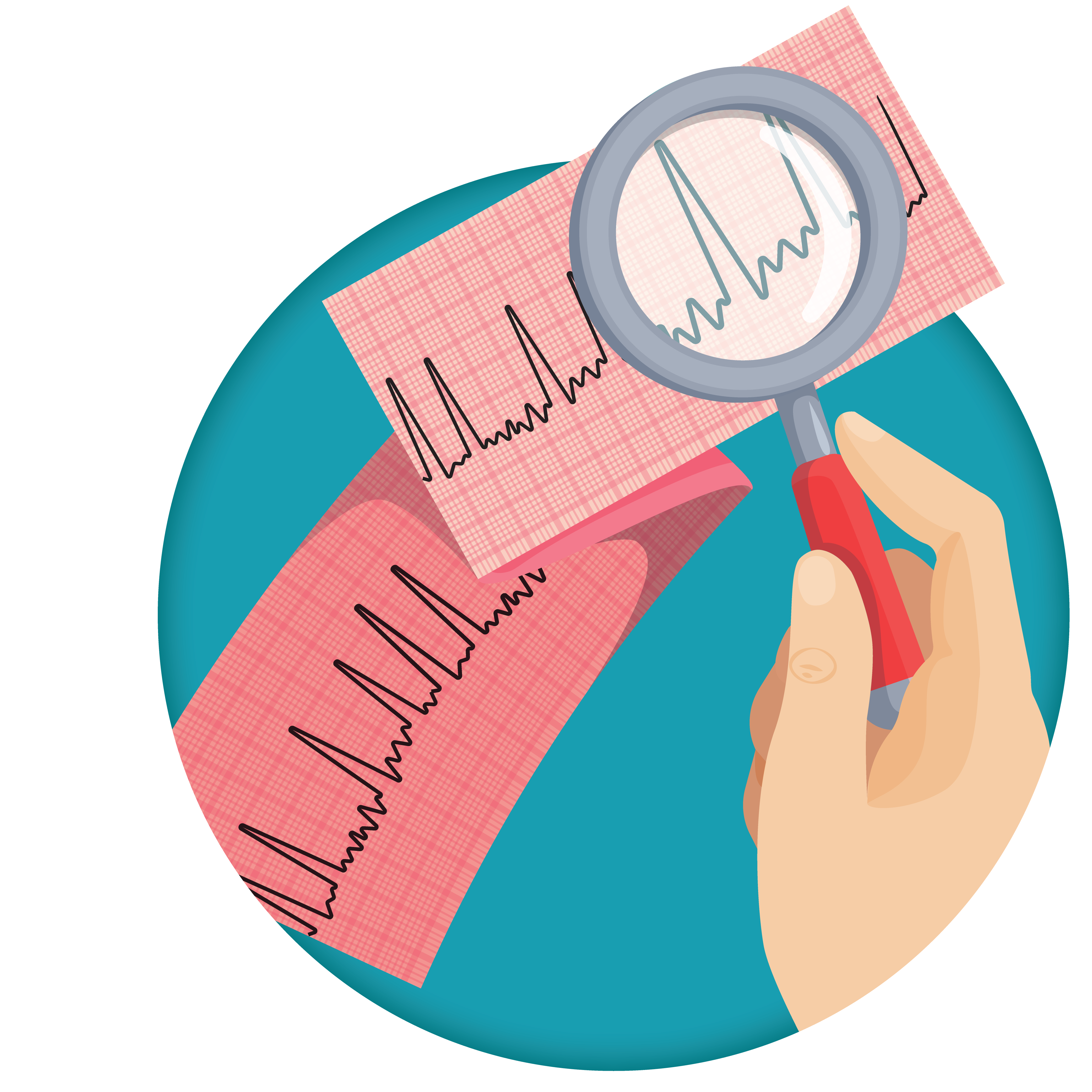This Group is for people that have loved ones or personally experienced Atrial Fibrillation. This Group creates a forum that allows anyone exibiting this system to discuss causes and remedial courses of action with others.
Atrial Fibrillation (also known as AFib)

Under normal circumstances, the human heart pumps to a strong and steady beat—in fact, more than 100,000 heartbeats each day!
But if you have atrial fibrillation, or AFib, the heart doesn’t always beat or keep pace the way it should. Many people with AFib say they can feel their heart racing, fluttering or skipping beats.
AFib is the most common heart rhythm disorder (arrhythmia). A major concern with AFib is that it also makes blood clots in the heart that can travel and cause strokes or block flow to other critical organs.
In fact, people with this condition are 5 times more likely to have a stroke than people without the condition. It can also lead to heart failure. But finding and treating AFib early on can help you avoid these problems.
Living With Atrial Fibrillation

Living with AFib can affect many different aspects of your life, including your stamina, relationships and emotional health.
But taking an active role in your care can help you feel better and more in control.
Questions to Ask Your Doctor
If you've been diagnosed with atrial fibrillation, there are several key questions that you should ask your heart doctor during your next visit. These questions will ensure that you and your doctor have discussed your major risk factors so that you can become or stay as healthy as possible.
- Are there any foods I should avoid because of atrial fibrillation?
- What is causing my atrial fibrillation?
- What type of atrial fibrillation do I have (e.g., paroxysmal, persistent, permanent)?
- What kind of activities can I perform and what should I avoid?
- Is my atrial fibrillation hereditary?
- Has my heart been weakened by the atrial fibrillation?
- What medicines should I take to control my heart rate?
- What medicines can I take to control my heart rhythm?
- If my heart returns to the normal rhythm, can I stop my blood thinners?
- Should I have a procedure to restore a normal heartbeat?
- Do I need blood thinners to avoid a stroke? What kind (e.g., aspirin, warfarin, dabigatran, rivaroxaban)?
- Will I still feel symptoms even if I am taking medicines for atrial fibrillation?
- If I take a medicine or have a procedure, what are the odds that it will work?
- The shock treatment (cardioversion) returned my heart to the normal rhythm but the atrial fibrillation is back. Is there anything I can do?
- My heartbeat is no longer fast but I still feel tired and short of breath. Is there a next step?
Overview
Your heart’s electrical system tells your heart when to contract and pump blood to the rest of your body. With AFib, these electrical impulses don’t work the way they should, short-circuiting in a sense. As a result, the heart beats too quickly and irregularly.
AFib is sometimes called a quivering heart. That’s because the two upper parts of the heart (called the atria) quiver. When this happens, the normal communication between the upper and lower chambers of the heart is disrupted and becomes very disorganized.
Because of this, many people with AFib feel zapped of energy fairly quickly or notice being out of breath simply walking up one flight of stairs. That’s because you may not be getting enough oxygen; the heart isn’t able to squeeze enough nutrient-rich blood out to the body.
There are 3 types of AFib:
• Paroxysmal: Comes and goes and generally stops on its own.
• Persistent: Lasts more than a week and can become permanent.
• Permanent: The heart’s normal rhythm can’t be restored.
Some cases of AFib are due to a heart valve problem, while some are not.
If you have AFib, you’re not alone. It’s the most common type of irregular heartbeat, affecting more than 3 million Americans. If untreated, it can lead to blood clots, stroke and heart failure.
Because your heart beat is out of sync, blood can collect in the chambers of the heart. When this happens, blood clots can form and can travel to the brain causing a stroke. Strokes related to AFib tend to be more severe and deadly.
Signs and Symptoms
Some people with AFib don’t have any symptoms. Those who do may report:
- Heart palpitation—a thumping or racing heart, fluttering or skipping beats
- Feeling unusually tired or fatigued
- Unexplained shortness of breath
- Dizziness or fainting spells
- Chest pain (angina)
What Increases Your Risk?
Several factors make AFib more likely.
- Older age, although it can happen at any age
- Conditions that place added strain on the heart including high blood pressure, a previous heart attack, heart surgery, valve disease, heart failure
- Other illnesses such as obesity, sleep apnea or hyperthyroidism
- Family history
- Drinking too much alcohol (routinely having 3 or more drinks a day or binge drinking)
Episodes of AFib are often triggered by certain activities. These may include:
- Heavy alcohol use
- Too much caffeine or other stimulants
- Periods of severe stress
- the stress of the body fighting infection
- the stress of recent surgery
Pay attention to what might make symptoms of AFib worse, so that you can share this information with your health care team.
Treatment
The good news is that with the right treatment, you can live a good life with AFib. But you need to be in tune with your heart and body. Untreated, atrial fibrillation can lead to blood clots, stroke and other heart-related problems, including heart failure.
Your treatment will likely depend on:
- Your age
- Your symptoms and the frequency of episodes
- Whether your heart rate is under control
- Your risk for stroke (see the CHADS2VASC score to determine your risk and need for anticoagulation)
- Other medical conditions, including if you already have heart disease
Treatment of AFib focuses on lifestyle changes and either rate control or rhythm control. Therapies to prevent blood clots and stroke are also important.
Lifestyle changes may include:
- Eating a heart-healthy diet full of fresh fruits and vegetables, fiber-rich foods, lean meats and fish and unsaturated fats like olive oil
- Limiting alcohol and caffeine
- Exercising regularly—aim to get 30 minutes of physical activity most days
- Managing stress levels
- Not smoking
- Taking your medication(s) as directed and managing other conditions
In addition to lifestyle changes, treatments often include medications and/or procedures.
Medications are used to:
- Prevent clots from forming or to dissolve an existing clot
- Restore your heart’s rate or rhythm
Medications to prevent or treat blood clots and stroke include:
- Aspirin
- Blood thinners/anticoagulants such as warfarin (brand name: Coumadin, Jantoven), dabigitran (brand: Pradaxa), rivaroxaban (brand: xarelto), and apixaban (brand:Eliquis)
Talk with your doctor about which blood thinner is right for you. Keep in mind that if you take a blood thinner, you must be very cautious about falls and other accidents that might cause bleeding. There are medicines or antidotes that can reverse the blood-thinning power of warfarin, but no reversal agents exist yet for the newer medications.
Read More: Understanding Risks of Stroke and Blood Thinners
There may also be dietary restrictions. For example, foods like spinach, kale and other vegetables are rich in vitamin K, which can disrupt the way warfarin works. That’s why you have to be careful to consume the same amount every day if you take warfarin. You also need to have your blood checked frequently when taking this medicine (called your INR/PT).
| Rate controlling medications | Heart rhythm controlling medications |
|
Your treatment may also involve medical procedures such as:
- Electrical cardioversion—uses low-voltage electrical shock applied to the chest with paddles to restore a normal rhythm
- Catheter-based ablation—a tube is inserted into a vein in the leg and threaded to the heart to fix the faulty electrical signals
- Surgical maze—small scar lines are made on the heart, creating a “maze” to prevent or redirect the abnormal beats from controlling the heart. This is done through open heart surgery.
- Pacemakers or atrial defibrillators—implantable devices that help restore and maintain regular heart rhythm
Understanding Risks of Stroke and Blood Thinners
If you have atrial fibrillation (AFib), your heart beats irregularly. As a result, your heart has a harder time pumping blood out and to the body.
When this happens, blood can pool in the heart and form clots. If a blood clot travels through the bloodstream, it can block a blood vessel in the brain and cause a stroke.
Choosing Blood Thinners or Left Atrial Appendage (LAA) Closure
For most people with atrial fibrillation, blood thinners lower the risk of stroke. However, blood thinners (also called anticoagulants) can cause bleeding.
Some people with a very high risk might consider a procedure called left atrial appendage closure that places a device in the heart to prevent strokes.
If you have atrial fibrillation, use this Stroke and Bleeding Risk Calculator together with the decision aids below to help you decide with your care team what treatment is right for you.
If you are living with atrial fibrillation and a very high, high, moderate, or low risk of stroke, use the tools in the sections below.
Living With Atrial Fibrillation
If you have atrial fibrillation (often called AFib), you’re not alone.
AFib is the most common type of heart arrhythmia—a problem with the heart’s rhythm. It happens when the electrical signals that help the heart function become chaotic and misfire.
You may feel a fluttering sensation in your chest, or your heart might be racing or skipping beats, which can be worrying; although not all people have these signs.
Living with AFib can affect many different aspects of your life, including your stamina, relationships and emotional health. But taking an active role in your care can help you feel better and more in control.
Source: https://www.cardiosmart.org/topics/atrial-fibrillation

Comments